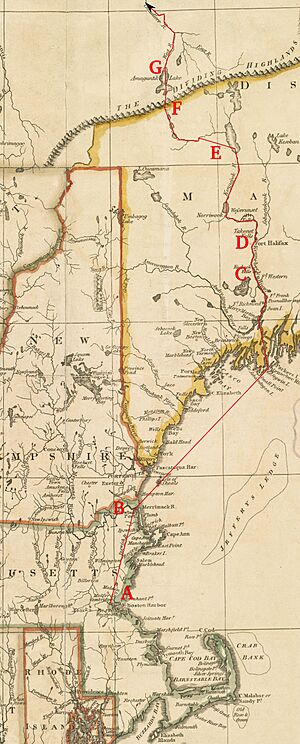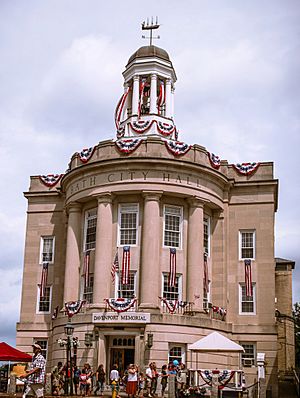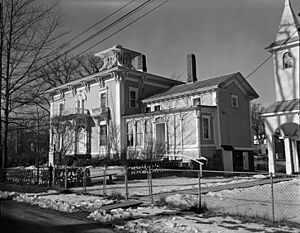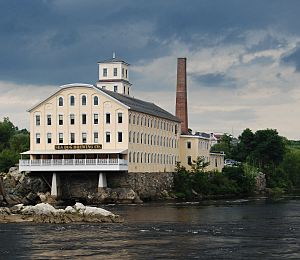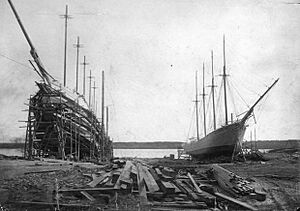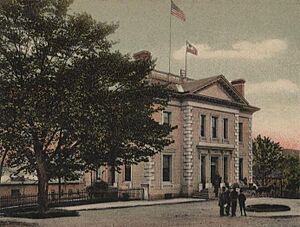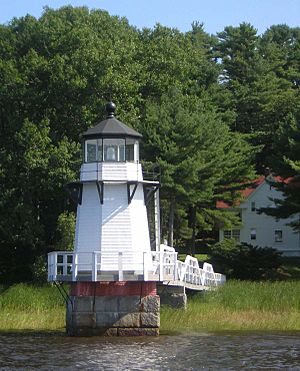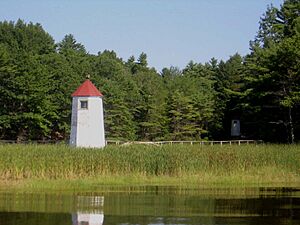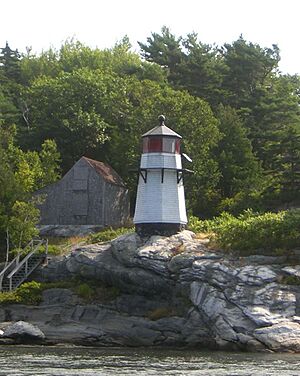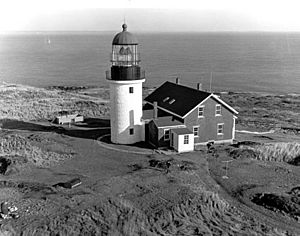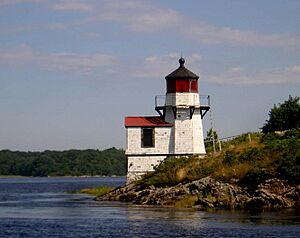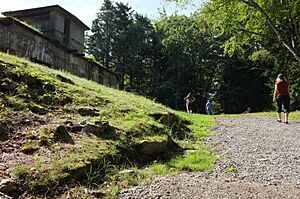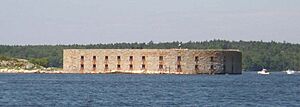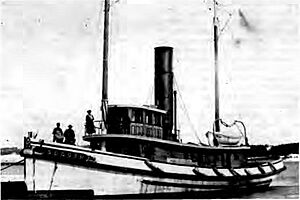National Register of Historic Places listings in Sagadahoc County, Maine facts for kids
The National Register of Historic Places is a special list of places in the United States that are important to our country's history. These places can be buildings, sites, or even entire neighborhoods. When a place is added to this list, it means it's recognized for its historical, architectural, or archaeological importance. It also helps protect these places for future generations to learn from and enjoy.
Sagadahoc County in Maine has many such special places. There are 60 properties and areas listed here! Let's explore some of them.
Contents
Historic Places in Sagadahoc County
Sagadahoc County is full of interesting spots that tell stories from the past. From old forts to lighthouses and historic homes, these places help us understand what life was like long ago.
Old Trails and Settlements
Some of the oldest listings are not just buildings, but entire areas that played a big part in history.
Arnold Trail to Quebec
The Arnold Trail to Quebec is a historic path that stretches through several counties, including Sagadahoc. It follows the Kennebec River and other waterways. This trail was used by Colonel Benedict Arnold and his troops during the American Revolutionary War in 1775. They marched through the wilderness in a tough journey to attack Quebec City in Canada. It's a reminder of the bravery and challenges faced by early American soldiers.
Clarke and Lake Company Archeological Site
Near Arrowsic, Maine, you'll find the Clarke and Lake Company Archeological Site. This was once a big colonial settlement. Sadly, it was destroyed during King Philip's War and later abandoned. Archaeologists study sites like this to learn about the daily lives of early settlers and the conflicts they faced.
Popham Colony Site
The Popham Colony Site is located near Fort Popham in Phippsburg, Maine. This was one of the earliest English settlements in North America, founded in 1607, just a few months after Jamestown. The colonists built a fort and some buildings, but the colony didn't last long. It's a very important archaeological site that helps us understand early attempts at colonization.
Historic Buildings and Districts
Many towns in Sagadahoc County have historic districts or individual buildings that are listed on the National Register.
Bath Historic District
The Bath Historic District covers a large part of Bath, Maine. This area is known for its beautiful old buildings, many of which were built during Bath's shipbuilding boom. Walking through this district is like stepping back in time, with grand homes and public buildings showing the city's rich past.
Richmond Historic District
Similarly, the Richmond Historic District in Richmond, Maine, showcases many historic buildings. These buildings often reflect the town's history as a busy port and trading center along the Kennebec River.
Pejepscot Paper Company
In Topsham, Maine, the Pejepscot Paper Company building is a historic industrial site. Also known as Bowdoin Mill, this place shows the importance of paper manufacturing in the region's economy. It's a great example of how industries shaped communities in the past.
Percy and Small Shipyard
The Percy and Small Shipyard in Bath is a very special place. It's now the main campus of the Maine Maritime Museum. This shipyard was famous for building large wooden sailing ships, especially during the late 1800s and early 1900s. It tells the story of Maine's incredible shipbuilding heritage.
U.S. Customhouse and Post Office
The U.S. Customhouse and Post Office building at 1 Front Street in Bath is another important historic structure. Customhouses were where taxes were collected on goods coming into the country by ship. This building shows the importance of trade and shipping to Bath's economy.
Winter Street Church
The Winter Street Church in Bath, located at the corner of Washington and Winter Streets, is a beautiful example of historic church architecture. It has been a landmark in the city for many years and represents the community's history and faith.
Lighthouses and Coastal Structures
Maine's coast is dotted with lighthouses that guided ships safely. Several of these are listed as historic places.
Doubling Point Light Station
The Doubling Point Light Station is on the western side of Arrowsic Island. This lighthouse is important because it helped ships navigate a tricky bend in the Kennebec River. Lighthouses like this were vital for maritime safety before modern navigation tools existed.
Kennebec River Light Station
Also known as the Doubling Point Range Lights, the Kennebec River Light Station is another set of lights on Arrowsic Island. Range lights work together to help sailors stay on the correct path in a channel. They are a fascinating part of maritime history.
Perkins Island Light Station
The Perkins Island Light Station is located on Perkins Island near Georgetown, Maine. This lighthouse has stood for many years, helping guide vessels through the waters of the Kennebec River estuary.
Seguin Island Light Station
South of Georgetown, you'll find the Seguin Island Light Station. This is one of Maine's most iconic lighthouses, standing tall on an island in the Atlantic Ocean. It has a powerful light that can be seen from far away, making it a crucial guide for ships entering or leaving the Kennebec River.
Squirrel Point Light Station
The Squirrel Point Light Station is located on Squirrel Point, also near Arrowsic Island. This lighthouse, like others in the area, played a key role in making the Kennebec River safe for the many ships that traveled its waters, especially during the peak of shipbuilding and trade.
Other Notable Historic Places
Fort Baldwin Historic Site
The Fort Baldwin Historic Site is on Sabino Hill in Phippsburg, Maine. This fort was built in the early 1900s to protect the mouth of the Kennebec River. It was part of a larger coastal defense system for the United States.
Fort Popham Memorial
Also in Phippsburg, the Fort Popham Memorial is a historic fort built during the American Civil War. It was designed to protect the Kennebec River from Confederate attacks. It's a cool place to explore and imagine what it was like to be a soldier guarding the coast.
Former Listing
Sometimes, a place might be removed from the National Register of Historic Places. This can happen if it is destroyed, or if it no longer meets the requirements.
The Tugboat SEGUIN
The tugboat SEGUIN was once listed on the National Register. It was a historic tugboat that was part of the Maine Maritime Museum in Bath. Unfortunately, after a long attempt to restore it, the project was not successful, and the remnants of the boat are now stored at the museum. It's a reminder that preserving history can sometimes be very challenging.
Images for kids


